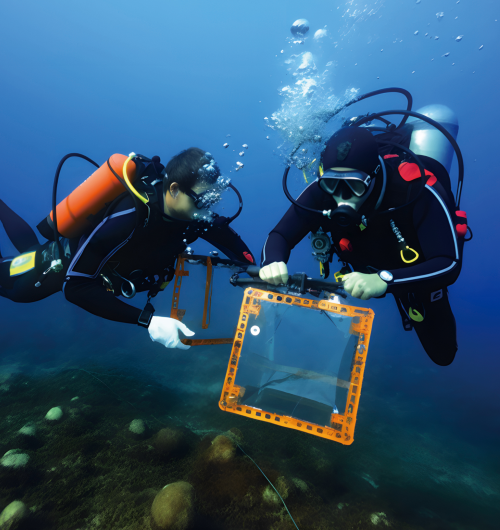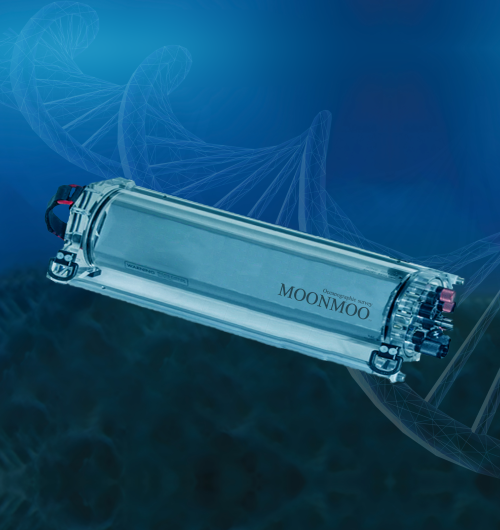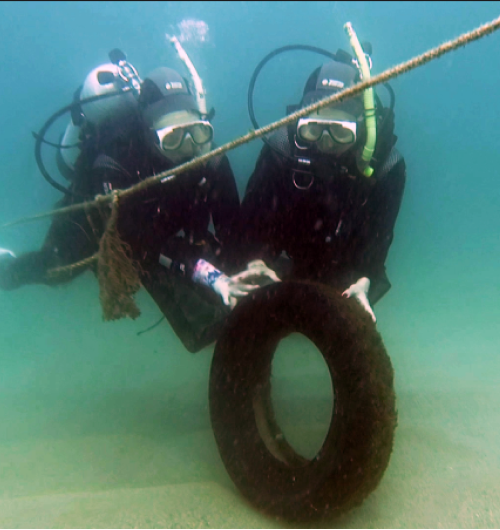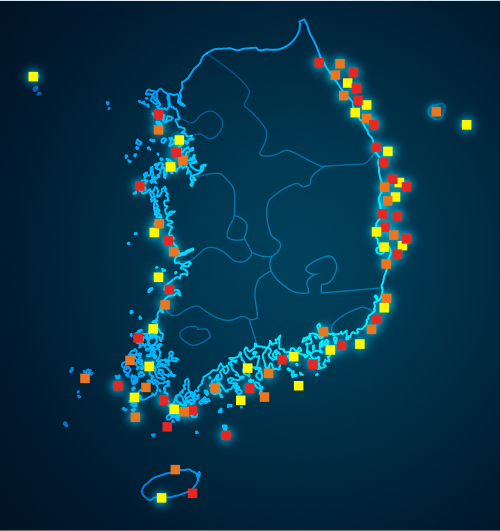
Citizen-Scientific Divers
UEC has been developing the 'Citizen-Scientific Divers' project since 2022, and initially, this project started with the plan to transition leisure sports divers into 'scientific divers.' Currently, it has expanded to a project for fostering 'citizen-scientific divers' targeting all citizens interested in underwater environments.
From 2024, a full-fledged educational program will begin. Upon completion of the education, participants will receive an official UEC certificate, and after passing the examination process, they will be issued a 'Registered Private Qualification Certificate (Issuing Institution: Korea Scientific Diving Research Institute).'
Our pilot phase prioritizes individuals who have formally learned scuba diving or freediving and hold a C-Card. However, those who have not yet learned diving will start with basic diving education. As time passes, we hope to train professional scientific divers equipped with various experiences and knowledge, who can then educate more 'citizen-scientific divers' and contribute to global underwater environmental conservation and restoration.


The 'MOONMOO' project will be conducted through collaboration between the Underwater Environment and Science Council (UEC), university research institutions, and local diving centers. During the 'MOONMOO' project, citizen diver will collect samples by using sampling equipment developed by a specialized company for surveying local biodiversity, after which university research institutions can analyze them. Additionally, the next stage of the 'MOONMOO' project plans to include citizen divers to monitor ocean pollution, including changes in water temperature, currents, and radioactive substances, not only biodiversity.
These analytical data will be periodically compiled and shared through relevant institutions and the UEC community. We hope that this collected big data can be utilized as a resource for further research.

COMPANION UNDERWATER
What causes distress to marine life is "underwater" garbage.
The 'Adopt-a-Dive-Spot' project aims to raise awareness and encourage citizens to directly participate in alleviating the global issue of 'underwater garbage,' which directly harms marine life.. It's not difficult for us to witness the suffering of marine life caused by marine litter discarded by people. In fact, marine litter that inflicts serious harm and danger to marine life is not on the beach but 'underwater.'This means that citizen divers can play an important role in effective marine ecological conservation.
Divers know the sea best. Divers are the ones who cherish the sea the most and are always ready to act to solve problems. Now, they want to engage in more meaningful diving for marine life and underwater environments, beyond just enjoying diving in the sea.
The most realistic and effective way to solve the problem of 'underwater garbage' is the participation of scuba divers.

Mosaic
There is much more garbage underwater than what can be seen on the beaches.
Underwater, there are various types of plastic garbage, vinyl, rubber, and other household waste sinking. In particular, fishing gear garbage such as nets, which directly and significantly harms marine life, is a type of marine litter that plagues the Korean waters.
The Underwater Environment and Science Council (UEC) started the 'Underwater Trash Mapping (UTM)' project from 2024. Photos of underwater trash compiled for the Mosaic project are all taken by citizen divers. Through gradual observation and research on domestic underwater garbage, we aim to develop a scientific approach to understand the impact of underwater debris on marine ecosystems and restoration. We ask for active participation from 'citizen divers' and 'scientists' in the Mosaic project, which studies the domestic underwater garbage environment.
Our divers are 'witnesses of underwater environmental destruction

